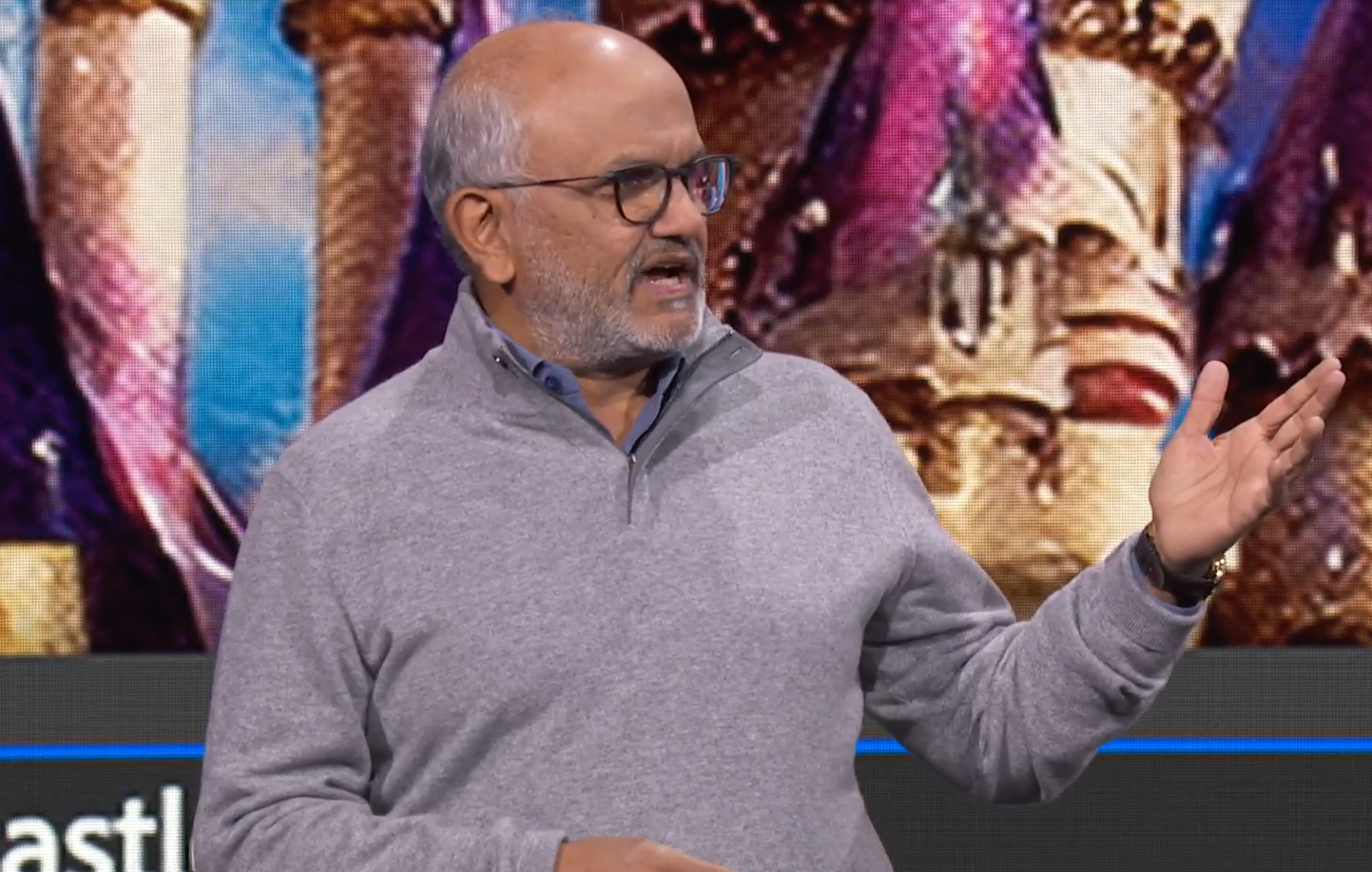Adobe Summit: GenAI Experience Cloud, customer Firefly models, marketing copilot with Microsoft
Adobe laid out a host of Experience Cloud enhancements, data collaboration and customer journey applications, custom Firefly models and a marketing copilot co-developed with Microsoft to connect Adobe's Experience platform with Microsoft 365 applications.
The barrage of news kicked off Adobe Summit in Las Vegas, the company's enterprise focused conference. With a format that targets CIOs and CMOs and everything in between, Adobe is hitting on the core themes of the content supply chain, generative AI and insights that drive returns.
At a high level, here's a look at Adobe's product updates across its portfolio. In addition to the marketing copilot collaboration with Microsoft, Adobe Summit will feature partnerships with IBM, Accenture, and Omnicom and customer thought leadership from companies such as GM, Delta and Pfizer.
During his keynote at Adobe Summit, Adobe CEO Shantanu Narayen said: "When we think about the magic and value of AI, we know that it actually comes only from the seamless integration into the workflows that all of you as customers already know and love."
Narayen added that generative AI led by Firefly will be embedded across its creative production and marketing workflows. He added that Adobe has leveraged generative AI to bolster its marketing returns. Narayen said:
"I loved engaging with our marketing teams, the products, the engineering and design teams to develop as they developed Adobe Gen studio so that we could empower marketers to quickly plan, create, store, deliver and measure all marketing content. What's constant is that content, data and journeys will at the core of how you engage with customers."
For Adobe, generative AI is seen as a technical bridge between experience, creative and marketing teams. "Our goal is to make sure that creative professionals and marketing professionals can use generative AI in their workflows. And our plan is to do that through a mix of models," said Ely Greenfield, CTO, Digital Media at Adobe.
- Adobe: Strong Q1, outlook a bit light, GenAI on deck for Experience Cloud
- Adobe, Figma call off $20 billion merger
- Adobe Max 2023: Firefly's new model, GenStudio and everything announced
Adobe Summit kicks off as marketing is in flux as a function with generative AI readiness, cookie depreciation and driving returns as key issues. Adobe is also infusing generative AI across its platform as it increasingly caters to multiple personas ranging from CFOs to CIOs to CMOs and digital and data chiefs.
"For enterprise users, we really see the combination of generative AI and the predictive AI unlocking genAI applications to go from toys to tools," said Lily Chiu-Watson, Director of Product Marketing, Adobe.
Here's a look at the enterprise-focused news from Adobe Summit.

Microsoft and Adobe teamed up on a Marketing Copilot. The two companies co-developed a marketing copilot that uses the data assets and insights within Adobe Experience Cloud and makes them available in Microsoft applications. Adam Justis, Director of Product Marketing for Adobe Experience Cloud, said the Microsoft copilot collaboration is "a meaningful way to democratizing access to insights from Experience Cloud.
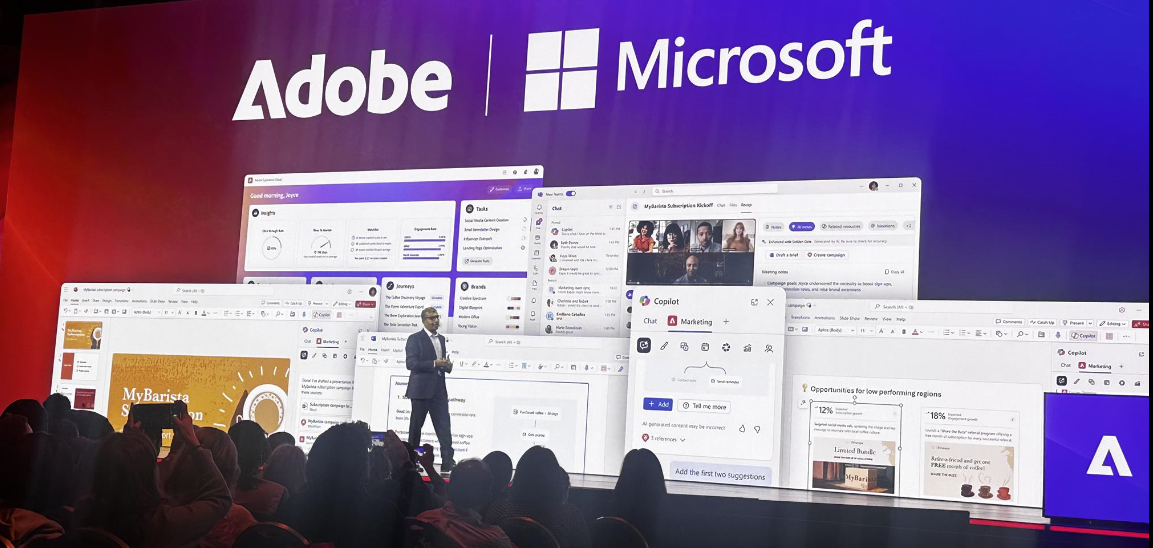
Adobe Experience Platform AI Assistant is a conversational AI interface that will enable Adobe Experience Cloud customers to easily get answers on status of data, audience segments and recommendations. AI Assistant can automate routine tasks, answer multiple types of questions, and serve a broad range of users.
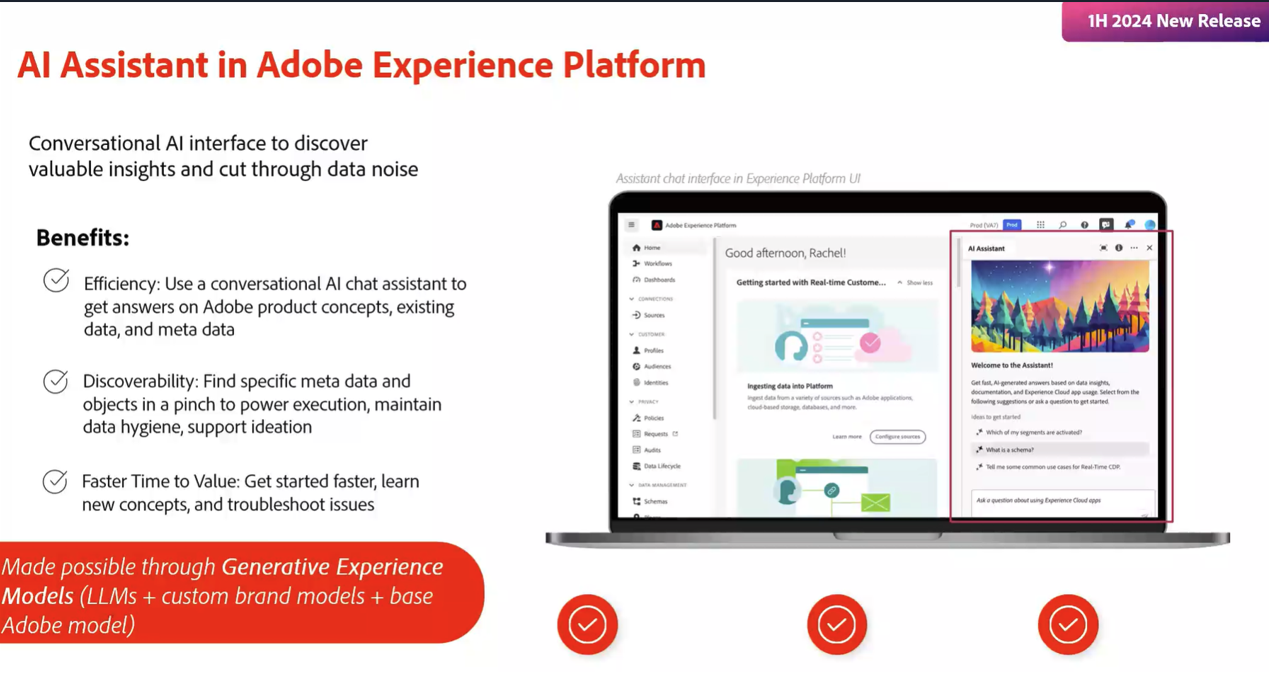
- Constellation ShortListâ„¢ Digital Experience (DX) Platforms
- Constellation ShortListâ„¢ Digital Asset Management (DAM) for Digital Experiences
Real-time data collaboration in Adobe Customer Data Platform. As cookies are phased out, first party data collaboration between brands, publishers and advertisers will be critical to identify audiences and market to them within strict privacy guidelines. Adobe will also add federated audience capabilities and the ability to tap into enterprise data in on-premise systems as well as cloud data warehouses such as Snowflake, Google Cloud's Big Query, AWS Redshift and others.
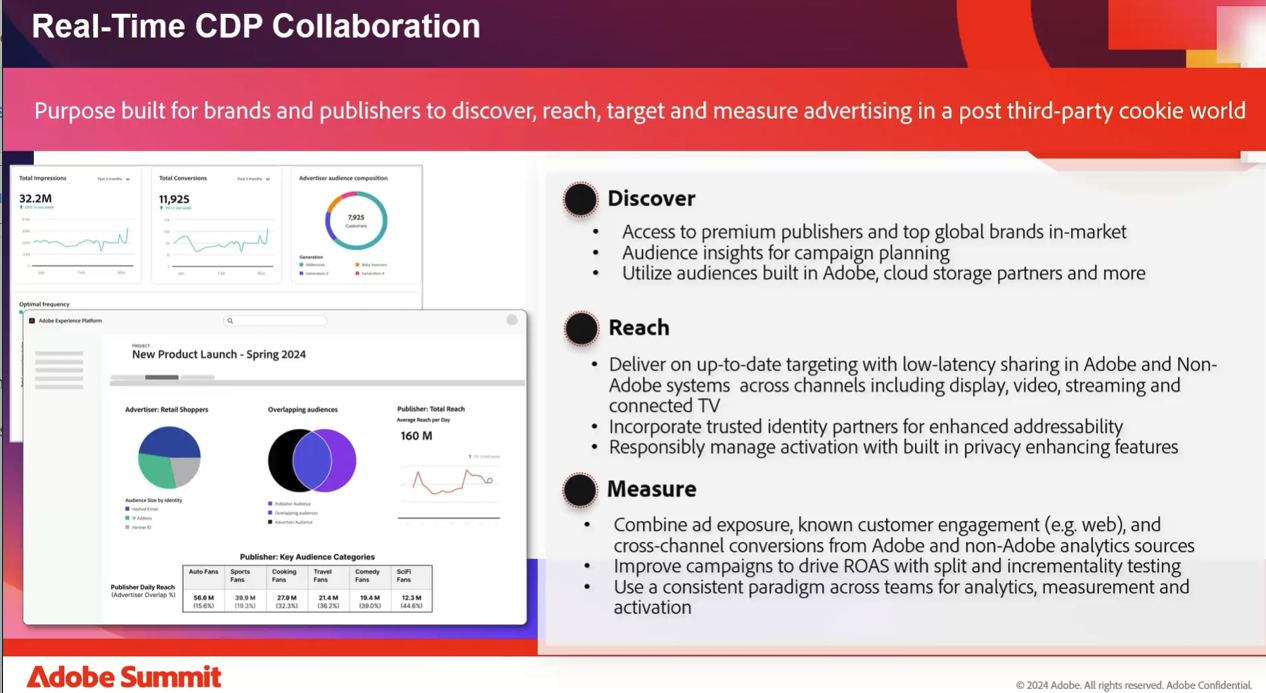
Adobe Gen Studio, which will be more integrated into the content supply chain and analytics workflows across customer journeys and campaigns.
Enhanced Adobe Journey Optimizer for B2C use cases as well as a standalone B2B edition. Customers will be able to harmonize brand campaigns as well as one-to-one customer interactions on the same surface.
As for Adobe Journey Optimizer B2B Edition, Adobe is taking the leads focus with Marketo and combining it with Accounts Based Marketing features. The biggest enhancement is the Adobe is adding the ability to target buying groups and the individuals with them.
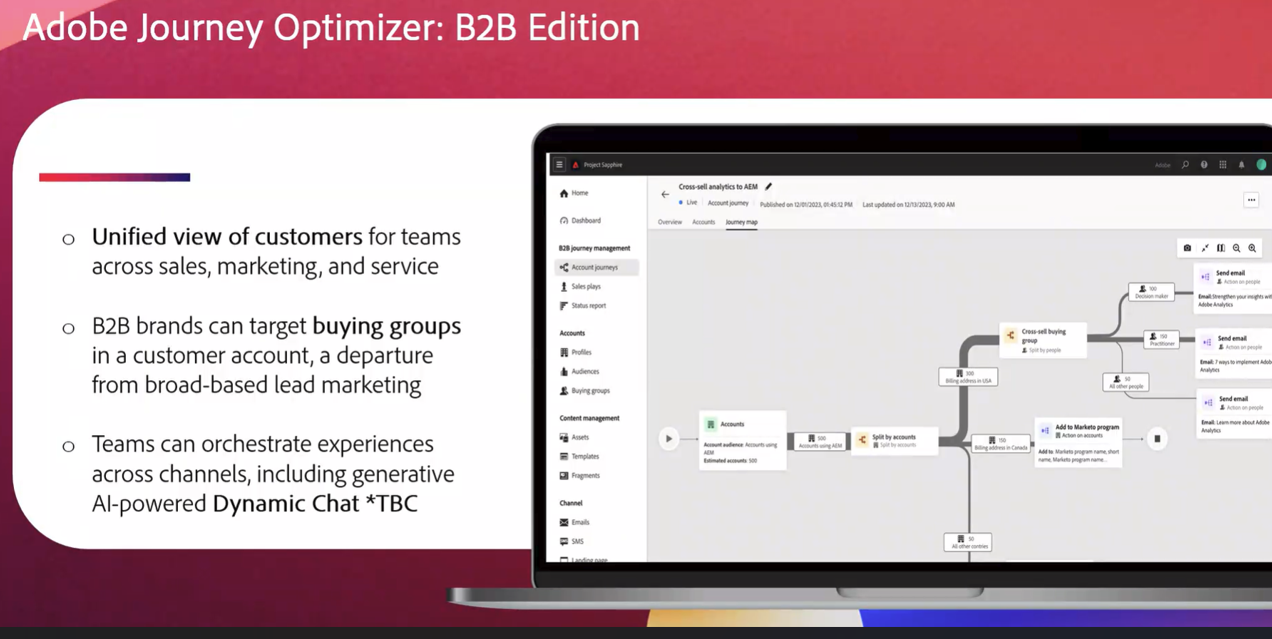
Firefly 2.1, custom models and Firefly Services. Adobe Summit will mark the one-year anniversary of Adobe's Firefly text-to-image generative AI model. Adobe will add capabilities to customize Firefly with brand assets to create content variations with guardrails. Firefly Services will include a host of APIs that will automate asset variations to account for audiences, channels and geographies.
"The more we learn and observe the way people are using Firefly, the more we can identify ways to remove more friction out of the system and allow them to focus on the work that they that is meaningful for their business," said Justis.
A pilot for new commercial terms on Experience Cloud. Justis said Adobe has been running a pilot with its largest Adobe Experience Cloud customers revolving on unifying metrics.
"There's an interest in some inherent flexibility in the purchase process where rather than just having a kind of a line item or a contract for all of these given applications, we have been exploring a unified metric commercial model," said Justis. "Our arrangement with a given organization might be credit models where customers can apply those credits across multiple products. So, it gives them the flexibility of not feeling completely locked into how they intend to use one product for a year, two years, three years. They can say this is the level of commitment that we're willing to make to Adobe, and the Adobe Experience Cloud and have the flexibility to leverage credits."
Adobe said the pilots have been well received and are available to the company's top 1,000 accounts.

